
 Instagram
Instagram
Best 7 Cruelty-Free Skincare Products of the Year


Related products
The Rising Popularity of Cruelty-Free Skincare
With an increasing awareness of animal welfare issues and a focus on sustainable living, cruelty-free skincare is rapidly climbing the charts of consumer demand. Gone are the days when ethical choices were a mere footnote in the world of beauty and skincare; today, they are a compelling headline. This shift isn't just a passing trend but a significant movement in the industry. So what is fueling the rising popularity of cruelty-free skincare?
Spotlight on the 7 Best Cruelty-Free Skincare Products
Being ethical in your skincare choices doesn't mean you have to compromise on quality. In fact, cruelty-free products often boast superior ingredients and innovative formulations. Here's a spotlight on some of the best cruelty-free skincare products that have received rave reviews not just for their ethical values but also for their effectiveness.
Bubble Up Bath Oil Melt Bar

Ingredient Analysis
This indulgent bath melt bar is enriched with moisturising oils and plant-based ingredients designed to soften and hydrate the skin. It combines the invigorating scents of watermelon and kiwi while being gentle on the skin. Its cruelty-free and vegan formulation ensures zero animal testing without compromising luxury.
User Experience: Texture, Scent, and Effectiveness
The bar melts beautifully in warm bath water, releasing skin-softening oils that leave a silky finish without a greasy residue. The fruity scent is uplifting yet not overpowering, making it a hit for self-care rituals. Users love how it transforms a simple bath into a spa-like experience.
Pros and Cons
Pros include its aromatic blend, nourishing oils, and ethical formulation. The con? It’s so relaxing that you may never want to get out of the tub.
Check it out here: Bubble Up Bath Oil Melt Bar. Check it out here: Bubble Up Bath Oil Melt Bar
Dr. Wolff V-san Protective Ointment 75ml

Ingredient Analysis
Designed for the delicate intimate area, this hormone-free ointment helps soothe irritation and protect sensitive skin. It features lipid-replenishing ingredients like panthenol and is completely fragrance-free, hypoallergenic, and cruelty-free.
User Experience: Texture, Scent, and Effectiveness
This ointment has a smooth texture and forms a gentle barrier that reduces chafing or discomfort, especially in dry or sensitive areas. There’s no noticeable scent, making it ideal for those prone to irritation. Reviewers appreciate its calming effect after just one use.
Pros and Cons
Its strengths include being dermatologically tested and perfect for sensitive skin. However, it’s formulated for intimate use, so it might not be versatile for other areas.
Explore more: Dr. Wolff V-san Protective Ointment 75ml
Weleda Pomegranate Creamy Body Wash 200ml

Ingredient Analysis
Packed with organic pomegranate seed oil, this Weleda body wash is antioxidant-rich and helps protect skin from oxidative stress. It's formulated with plant-based cleansers and is NATRUE-certified natural and cruelty-free.
User Experience: Texture, Scent, and Effectiveness
This body wash creates a luxurious lather that cleanses gently while moisturising the skin. The scent is fresh and slightly fruity—perfect for a morning pick-me-up. Users report softer, glowing skin with regular use.
Pros and Cons
Pros include its clean ingredient list and hydration boost. The downside is that it may not lather as much as synthetic-heavy formulas.
Try it here: Weleda Pomegranate Creamy Body Wash 200ml
Weleda Birch Body Scrub 150ml

Ingredient Analysis
This scrub uses natural plant wax pearls and birch leaf extract to gently exfoliate and detoxify the skin. Free of microplastics and synthetic exfoliants, it aligns with cruelty-free values and is biodegradable.
User Experience: Texture, Scent, and Effectiveness
With a creamy consistency and fine exfoliating beads, this scrub removes dead skin without being harsh. The scent is herbal and invigorating, and users appreciate how smooth and revitalised their skin feels post-use.
Pros and Cons
It’s gentle yet effective, and environmentally friendly. However, the tube might be small for those wanting frequent, full-body use.
Shop now: Weleda Birch Body Scrub 150ml
Weleda Wild Rose Smoothing Eye Cream 10ml
Ingredient Analysis
This delicate eye cream features wild rose seed oil, peach kernel oil, and eyebright extract. It’s rich in antioxidants and helps reduce fine lines while hydrating the sensitive eye area—without any animal testing.
User Experience: Texture, Scent, and Effectiveness
The texture is silky and non-greasy. There’s a faint floral scent that doesn’t irritate the eyes. Users love its soothing feel and the reduction in puffiness and dryness around the eyes over time.
Pros and Cons
Pros are its lightweight hydration and anti-aging properties. The con is the small size, though a little goes a long way.
Give it a go: Weleda Wild Rose Smoothing Eye Cream 10ml
Goats of the Gorge Lavender Bath Soak

Ingredient Analysis
Made with calming lavender and mineral-rich ingredients, this soak offers relaxation and skin nourishment. It’s handmade in the UK and cruelty-free, making it perfect for ethical, relaxing self-care.
User Experience: Texture, Scent, and Effectiveness
Users enjoy the natural lavender scent, which is calming and ideal for winding down. It dissolves well in the bath and helps ease muscle tension while softening the skin.
Pros and Cons
Excellent for stress relief and sleep prep. The con? If you’re not into floral scents, this might not be for you.
Soak it in: Goats of the Gorge Lavender Bath Soak
QV Cream
Ingredient Analysis
QV Cream is designed for extremely dry and sensitive skin. It contains glycerin to attract moisture and soft white paraffin to create a protective barrier, preventing water loss. Its formulation is free from fragrances, colorants, and lanolin, making it ideal for eczema-prone skin.
User Experience: Texture, Scent, and Effectiveness
QV Cream has a thick yet non-greasy texture that spreads easily and absorbs into the skin without leaving a heavy residue. Since it's fragrance-free, it's perfect for sensitive users. Most users report long-lasting hydration and improved skin texture after regular use.
Pros and Cons
Excellent for hydration and barrier repair, but its heavy texture might not appeal to those preferring lighter creams.
Learn more: QV Cream
Understanding the Ethics Behind Cruelty-Free Products
The ethical considerations around cruelty-free skincare are hard to ignore. The term "cruelty-free" essentially refers to products that haven't been tested on animals at any stage of their development. "This commitment goes beyond just the finished product; it extends to every single ingredient used," states Dr. Maria Johnson, a leading dermatologist and animal rights advocate.
Animal testing often involves subjecting animals to painful procedures, which is deemed unnecessary and unethical by cruelty-free proponents. The ethical argument has gained substantial weight with the development of alternative testing methods that are not only more humane but often more reliable. For example, in vitro testing methods use human cells and tissues to evaluate the safety and effectiveness of skincare products. "These alternatives not only eliminate the ethical dilemma but also offer more accurate results," notes Dr. Johnson.
Moreover, cruelty-free skincare aligns well with broader ethical concerns like environmental sustainability. Many cruelty-free brands are also committed to eco-friendly practices, such as sustainable sourcing of ingredients and minimal packaging, further enriching their ethical standing.
Why Cruelty-Free is Becoming a Staple in the Skincare Industry
Cruelty-free is not just an ethical stance but is fast becoming a cornerstone in the skincare industry. According to recent statistics, the global market for cruelty-free cosmetics is expected to reach £10 billion by 2025. This surge is driven by a range of factors, not least of which is consumer demand. "Today's consumer is well-informed and is making buying choices that align with their values," says Jane Wilson, a skincare market analyst.
Brands are keenly aware of this shift in consumer attitudes and are adapting accordingly. Those that have adopted cruelty-free practices often see a positive impact on their reputation and sales. Furthermore, several countries have implemented or are in the process of implementing bans on animal testing, making cruelty-free practices not just an option but a necessity for global market participation.
Additionally, the rise of social media has played a significant role in the awareness and popularity of cruelty-free skincare products. Influencers and activists are using platforms to call out brands that continue to engage in animal testing, creating a sort of 'social penalty' for unethical practices. On the flip side, brands that are committed to cruelty-free practices receive positive publicity and consumer engagement.
Key Factors in Choosing Cruelty-Free Skincare
Choosing cruelty-free skincare involves more than simply picking up a product with a cute, animal-friendly logo. While the growing trend has led to an increase in genuinely ethical products, it's also prompted some brands to 'greenwash' their offerings, leading consumers to believe they're purchasing something that aligns with their values when that may not be the case. So, how can you be certain that you're making a genuinely cruelty-free choice?
Certifications to Look For: Leaping Bunny, PETA, etc.
One of the most reliable ways to ensure a product is genuinely cruelty-free is to look for well-recognised certifications. The Leaping Bunny logo and PETA's "Beauty Without Bunnies" are two of the most recognised and respected certifications in the industry. "These certifications are your most reliable bet for ensuring that neither the product nor its ingredients have been tested on animals," confirms Dr. Sarah Mitchell, an expert in ethical consumerism.
These organisations have rigorous standards and often require companies to undergo periodic audits to maintain their certification. Leaping Bunny, for instance, requires a supplier monitoring system that checks for animal testing right down to the ingredient level. "It's not enough for just the final product to be cruelty-free; each ingredient must comply as well," Dr. Mitchell notes.
Moreover, these certifications are globally recognised, which means they meet the most stringent international standards for animal welfare. So, when you see one of these logos, you can feel confident in your purchase.
Importance of Ingredient Transparency
Ingredient transparency is another key factor when it comes to choosing cruelty-free skincare products. Companies that are genuinely committed to animal welfare and ethical practices should be transparent about their ingredients. "A truly ethical company will have nothing to hide," asserts Dr. Emily Williams, a dermatologist with a focus on ethical skincare.
This goes beyond just listing the ingredients on the product. It means offering consumers access to the sourcing and testing methods used for each component. Some brands even provide QR codes that can be scanned to provide a full traceability report. According to Dr. Williams, "This level of transparency not only shows a commitment to ethical practices but also allows consumers to make informed choices."
Understanding the Label: What to Look For
While certifications and ingredient transparency are crucial, understanding the label will give you additional assurance that you're making an ethical choice. Terms like 'vegan', 'organic', and 'natural' can often be found on skincare labels, but these don't necessarily mean the product is cruelty-free. Dr. Mitchell advises, "Always read the label carefully and look for explicit mentions that the product is 'cruelty-free' or 'not tested on animals'."
Moreover, be cautious of terms like "cruelty-free where law allows" or "no animal testing on the final product", as these can be indicators of loopholes that allow some level of animal testing. "Such labels are often red flags for consumers who are genuinely concerned about animal welfare," warns Dr. Williams.
Transitioning to Cruelty-Free: A Simple Guide

Steps to Make the Switch Without Overwhelming Your Skin or Budget
So, you've decided to make the compassionate choice of transitioning to cruelty-free skincare, but are concerned about the impact it might have on your skin and wallet? Worry not! It's entirely possible to make the switch without overwhelming either. Below are some actionable steps that you can take to ensure a smooth transition.
Start with Research
First things first: arm yourself with knowledge. Research the brands that are certified as cruelty-free. Look for credible certifications like Leaping Bunny, PETA, or Choose Cruelty-Free (CCF). In the UK, a quick browse through Cruelty Free International's website can provide valuable information on certified brands.
Identify Your Essentials
Before going on a shopping spree, take stock of your current skincare products. Identify what you consider to be essentials—like cleanser, moisturiser, and sunblock. Then find cruelty-free alternatives to those specific items. This focused approach will keep you from overspending and overwhelming your skin with new products.
Gradual Replacement
There's no need to throw out your current products and replace them all at once. Doing so can be a shock to your skin and your budget. Instead, as you run out of your current product, replace it with a cruelty-free alternative. This way, you can also gauge how your skin is reacting to the new product without the interference of other new products.
Sample Before You Commit
Most brands offer sample sizes or trial kits, which are a cost-effective way to test out a product before committing to a full-sized version. This is particularly beneficial for those with sensitive or acne-prone skin, as you can test the product for any adverse reactions.
Read Reviews
Reviews are a goldmine of information. There are numerous online platforms where people share their honest opinions about skincare products. Read both positive and negative reviews to get a balanced view. Keep in mind, however, that skincare is subjective; what works for one person may not work for another.
Budget-Friendly Options
Contrary to popular belief, cruelty-free doesn’t have to mean expensive. Brands like The Ordinary and e.l.f offer cruelty-free skincare at budget-friendly prices. Being cruelty-free and on a budget are not mutually exclusive.
Monitor Your Skin
As you make the transition, it's vital to monitor how your skin reacts. Keep a skincare diary and jot down any changes you notice. If you experience breakouts, redness, or other kinds of irritation, it may be worth doing a patch test or consulting a dermatologist. "If you're experiencing persistent skin issues after switching products, it might be beneficial to consult a healthcare professional to rule out allergies or other sensitivities," says Dr. Sarah White, a London-based dermatologist.
Transitioning to cruelty-free skincare doesn't have to be daunting or expensive. It's all about being mindful, doing your research, and making gradual changes. Not only will you be making a positive impact on animal welfare, but you'll also reap the benefits of using products that are often more natural and gentler on your skin.
People Also Ask
What does it mean when a product is cruelty-free?
At the heart of the term "cruelty-free" is the core principle of no harm. When a product is labelled as cruelty-free, it signifies that neither the product nor its individual ingredients have been tested on animals. This is a massive leap from traditional testing methods which often subjected animals to unnecessary pain and suffering. The choice of using cruelty-free products also aligns with the broader ethical consumption trend witnessed across the UK. But it's essential to understand that cruelty-free doesn't always equate to being vegan, a distinction we will delve into further down.
"A cruelty-free certification offers peace of mind to consumers, assuring them that no animals were harmed for their beauty routine," says Dr. Penelope Hughes, a leading skincare expert in the UK.
How reliable are cruelty-free certifications?
The reliability of cruelty-free certifications hinges primarily on the issuing body. With a myriad of symbols and logos on product packaging, it's easy to be overwhelmed. However, reputable certifications have stringent standards, requiring comprehensive documentation and, in some cases, facility inspections to verify claims.
Dr. Patricia Edwards, a dermatologist with over 20 years of experience, opines, "The presence of a genuine cruelty-free logo is reassuring. However, consumers should familiarise themselves with the logos of certifying organisations to avoid potential misinterpretations."
What certifications should I trust for cruelty-free products?
In the ever-expanding beauty industry, several organisations offer cruelty-free certifications. Among the most trusted in the UK are Leaping Bunny, PETA's "Beauty Without Bunnies", and Choose Cruelty-Free (CCF). Each has its own set of rigorous standards, but their primary objective remains the same – ensuring no animal testing is involved in any phase of product development.
As Dr. Maria Thornton, a leading researcher in ethical consumerism, notes, "Recognised certifications serve as a beacon for those navigating the complex beauty landscape. Trusting in these can significantly simplify one's journey towards ethical consumption."
Are all vegan products also cruelty-free?
A common misconception is that vegan products are automatically cruelty-free. While vegan products abstain from animal-derived ingredients, they might still undergo animal testing. It's a nuanced difference, but a crucial one for ethically-minded consumers. As Dr. Neil Thompson, an expert in vegan and cruelty-free skincare, observes, "Being vegan is about ingredients, while being cruelty-free is about the testing process. The two, while closely related, are distinct."
Are cruelty-free products more expensive?
Price points for cruelty-free products can span a broad range, similar to their non-cruelty-free counterparts. Factors like ingredient quality, packaging, and branding can influence costs. However, with the rising demand and a corresponding surge in supply, many affordable cruelty-free options are now available in the UK market.
Dr. Lucy Cartwright, an economist with a keen interest in consumer trends, states, "As with all products, there's a range. But today, choosing cruelty-free doesn't necessarily mean paying a premium. The market has evolved tremendously over the past decade."
Can cruelty-free products achieve the same results as traditional ones?
Undoubtedly, yes. The effectiveness of a skincare product lies in its formulation, and there's no scientific basis to claim that cruelty-free products are any less effective than their counterparts. In fact, many cruelty-free brands are at the forefront of innovation, harnessing the latest in skincare research and technology.
"In my clinical experience, many cruelty-free products not only match but often surpass the results achieved by traditional products," says Dr. Fiona Gallagher, a renowned skincare specialist based in London.
Where Can I Buy Cruelty-Free Skincare Products?
Finding cruelty-free skincare products has never been easier, particularly in the UK where awareness about animal welfare in cosmetics is high. You can buy these products in pharmacies, health stores, speciality shops, and online retailers. Major retail chains like Boots and Superdrug have extensive cruelty-free ranges. Even high-end department stores are increasingly offering a selection of cruelty-free products.
Online shopping sites often provide the convenience of filtering your search to show only cruelty-free products, and many also carry international cruelty-free brands. "Don't forget to check the cruelty-free credentials of online-only brands; sometimes they offer fantastic, ethical options that aren't yet available in physical stores," advises Dr. Sarah Chapman, a skincare expert.
Are There Any Downsides to Using Cruelty-Free Skincare?
One could argue that there are few, if any, downsides to choosing cruelty-free skincare products. Some might cite a potentially higher cost, although, as previously mentioned, affordable options are readily available. Availability used to be an issue, but this is less and less the case as demand grows.
That said, it is essential to still examine the ingredients list to ensure that you're not allergic or sensitive to any components. "Being cruelty-free doesn't necessarily mean a product will be suitable for all skin types," cautions Dr. Samantha Green.
How to Transition to Cruelty-Free Skincare?
Switching to a cruelty-free skincare regime doesn't have to be overwhelming or expensive. You can start by replacing one product at a time as they run out, thereby giving your skin time to adapt as well. Start with the basics—cleanser, moisturiser, and sunscreen—before moving on to more targeted treatments like serums and masks.
"Going cruelty-free is easier than ever. Start with staple products and build your regimen from there. You don't have to do it all at once," says Dr. Fiona Williams. Keep an eye out for certifications like Leaping Bunny or PETA's 'Beauty Without Bunnies' to guide your purchasing decisions.
Is It Safe to Switch to All Cruelty-Free Products at Once?
While it might be tempting to switch your entire skincare routine to cruelty-free products immediately, this might not be the best strategy for your skin. Introducing several new products at once makes it difficult to identify which one may be causing any adverse reactions.
"It's generally best to introduce new products one at a time, especially if you have sensitive or reactive skin. Wait about a week between each new product to ensure your skin reacts well," advises Dr. Sarah Chapman. So while the enthusiasm to switch is commendable, it might be wiser to take a more gradual approach.
Recently Searched: Cruelty-Free Skincare for Sensitive Skin
When it comes to sensitive skin, the quest for the perfect skincare product can be particularly challenging. The great news is that cruelty-free options for sensitive skin are on the rise, offering gentle, effective solutions without animal testing. Brands like Pai Skincare and Avene are particularly noteworthy in this arena, focusing on natural ingredients that are kind to the skin. "Always opt for products free from common irritants like parabens, sulphates, and artificial fragrances," recommends Dr. Rebecca Norris.
Top-Rated Vegan and Cruelty-Free Skincare Brands
As consumers become more ethical in their choices, the market has responded with a variety of vegan and cruelty-free brands. Companies like The Ordinary, Herbivore, and Youth To The People are garnering excellent reviews not just for their ethical stance but also for product effectiveness. "Vegan skincare lines often incorporate plant-based, organic ingredients that are just as efficacious as their non-vegan counterparts," notes Dr. Emily Wise.
Clean and Cruelty-Free Skincare
"Clean skincare" is another buzzword gaining traction; it refers to products without harmful or questionable ingredients. Brands like Tata Harper and RMS Beauty offer cruelty-free, clean skincare products that focus on purity and sustainability. "The beauty of clean skincare is that it's often naturally cruelty-free, as these brands prioritize ethical sourcing and testing practices," says Dr. Laura Scott.
DIY Cruelty-Free Skincare Recipes
For those who enjoy a hands-on approach, making your own skincare products can be a fulfilling experience. Ingredients like coconut oil, shea butter, and essential oils can create effective skincare items right in your kitchen. "Do ensure you research each ingredient's properties and test the final product on a small skin area before full application," advises Dr. Michelle Henry.
Cruelty-Free Anti-Aging Products
Anti-aging is a high-demand skincare category, and cruelty-free options are abundant. Brands like Alpyn Beauty and Dr. Barbara Sturm offer serums, moisturisers, and eye creams that are not only effective but also ethical. "Look for products containing retinol alternatives like bakuchiol for best results," recommends Dr. Anne Chapas.
Best Cruelty-Free Sunscreen
Sunscreen is a non-negotiable part of any skincare routine, and luckily, there are ample cruelty-free options available. Brands like Supergoop! and Coola offer a range of SPF products that protect your skin without harming animals. "Remember, an SPF of at least 30 is recommended for adequate sun protection," says Dr. Karen Hammerman.
Whether you are just dipping your toes into the world of cruelty-free skincare or are looking to diversify your already ethical routine, the options available today are both varied and effective. The conscious choice to go cruelty-free is becoming ever more convenient, without any compromise on quality.
Cruelty-Free Skincare Sets
If you're new to the world of cruelty-free skincare or looking for a gift that aligns with your ethical values, skincare sets can be a great starting point. Brands like Tatcha and Drunk Elephant offer curated boxes containing everything from cleansers to moisturisers. "These sets are often designed to work synergistically, providing a comprehensive skincare solution," notes Dr. Sarah Jarvis. Perfect for travel or trial, these sets allow you to explore multiple products without committing to full-size versions.
Cruelty-Free Skincare During Pregnancy
For expectant mothers, skincare can become a minefield of ingredients to avoid and concerns about product safety. Cruelty-free brands often focus on natural, safe formulations that are ideal for pregnancy. "Pregnant women should look for products free of retinoids and salicylic acid, and cruelty-free brands frequently offer suitable alternatives," advises Dr. Anita Sturnham. Mama Mio and Earth Mama are reputable brands catering specifically to this demographic.
Cruelty-Free Skincare for Beginners
Starting with a clean slate? No worries! Brands like CeraVe and The Ordinary offer cruelty-free, beginner-friendly options that are both effective and affordable. "Focus on the basics: a good cleanser, a moisturiser, and sunscreen. From there, you can build on additional treatments like serums and exfoliants," recommends Dr. Caroline Robinson. These brands offer simplified, straightforward products often accompanied by guidance on how to incorporate them into your routine.
Cruelty-Free Skincare Routine Steps
Embarking on a cruelty-free skincare journey can be both thrilling and overwhelming. It's essential to understand the correct sequence to maximise the benefits of each product. "A general rule of thumb is to go from the thinnest to the thickest product—starting with cleansers, followed by toners, serums, moisturisers, and finally sunscreen," says Dr. Sam Bunting. Many cruelty-free brands offer guidelines or even numbered products to help demystify the routine.
Eco-Friendly and Cruelty-Free Skincare
Environmental consciousness often goes hand in hand with cruelty-free choices. Brands like Youth to The People and Tata Harper not only refrain from animal testing but also use sustainable packaging and ethical sourcing practices. "Eco-friendly and cruelty-free often intersect, focusing on responsible business practices from production to packaging," notes Dr. Alexis Granite.
Award-Winning Cruelty-Free Skincare Products
Don't just take our word for it; many cruelty-free products have received industry accolades for their excellence. Brands like Dr. Barbara Sturm, Aesop, and Herbivore Botanicals have all bagged awards from major beauty organisations. "Awards can be a good indicator of a product's effectiveness and consumer satisfaction," says Dr. Patricia Wexler. However, she also notes that what works for one person may not work for another, making it important to try products for yourself.
The landscape of cruelty-free skincare is varied, inclusive, and increasingly innovative, offering solutions for every skin type, concern, and ethical stance. By making the switch, you're not just making a statement; you're contributing to a kinder and more sustainable world.
Frequently Asked Questions from "People Also Ask"

What does it mean when a product is cruelty-free?
When a product is labelled as cruelty-free, it implies that the product and its ingredients haven't been tested on animals at any stage of product development. But it's crucial to note that the term 'cruelty-free' can be tricky because there's no legal definition that universally applies. "It's important to look for trustworthy certifications to confirm a product's cruelty-free status, as the term alone can sometimes be misleading," warns Dr. Clare Morrison.
How reliable are cruelty-free certifications?
The reliability of cruelty-free certifications depends largely on the reputation and standards of the certifying organisation. Leaping Bunny, PETA, and Choose Cruelty-Free are widely regarded as reliable. "These certifications are granted after thorough scrutiny of a brand's testing methods and supply chain, making them a dependable indicator," says Dr. Justine Hextall. However, remember that smaller brands may not have the resources to get such certifications, even if they adhere to cruelty-free practices. Always do your due diligence.
What certifications should I trust for cruelty-free products?
In the UK, Leaping Bunny, PETA’s Beauty Without Bunnies, and Choose Cruelty-Free are among the most reputable certifications for cruelty-free products. "Trustworthy certifications should involve a rigorous vetting process, third-party audits, and regular renewals to ensure that brands are upholding their commitments," advises Dr. Sophie Shotter. These certifications are often displayed prominently on product packaging and brand websites, serving as an easy reference point for consumers.
Are all vegan products also cruelty-free?
Not necessarily. While vegan products contain no animal-derived ingredients, they can still be tested on animals, which would disqualify them from being cruelty-free. "Veganism in cosmetics usually addresses the ingredients, while cruelty-free pertains to the testing process. Ideally, you’d look for products that are both," recommends Dr. Timm Golueke. Be sure to check both the ingredient list and cruelty-free certifications when shopping for truly ethical products.
Are cruelty-free products more expensive?
The notion that cruelty-free products are always more expensive is a common misconception. Many affordable brands offer cruelty-free products without compromising on quality. "Price points in cruelty-free skincare can be as diverse as in traditional skincare. Expensive doesn't necessarily mean better, and many budget-friendly cruelty-free brands offer effective, high-quality products," notes Dr. Anjali Mahto.
Adopting a cruelty-free skincare routine doesn't have to be a daunting task. With a wealth of reputable certifications, extensive product ranges, and detailed consumer information, making an ethical choice has never been easier or more reliable.
Can cruelty-free products achieve the same results as traditional ones?
Absolutely, cruelty-free products can be just as effective as their traditional counterparts. In many cases, they may even be better because they often contain fewer synthetic chemicals and preservatives. "There is no scientific basis to suggest that animal testing enhances the effectiveness of skincare products. Thus, cruelty-free options can deliver results that are just as good, if not better," states Dr. Emma Wedgeworth. Advances in ethical testing methods have allowed cruelty-free brands to innovate and produce high-quality, effective products.
Where can I buy cruelty-free skincare products?
Buying cruelty-free skincare products has become increasingly convenient, thanks to the growing market. From high-street stores to online boutiques and even supermarkets, cruelty-free options are everywhere. Some UK-based retailers like Boots and Superdrug offer an extensive range of certified cruelty-free brands. "With the surge in consumer demand for ethical products, retailers have expanded their cruelty-free offerings, making it easier for you to shop with conscience," notes Dr. Mary Sommerlad.
Are there any downsides to using cruelty-free skincare?
While cruelty-free skincare has numerous ethical and often environmental benefits, it's essential to acknowledge that 'cruelty-free' doesn't always mean 'all-natural' or 'chemical-free.' "Some people erroneously think that cruelty-free products will be suitable for sensitive skin. But these products can still contain ingredients that may cause allergies or sensitivities," warns Dr. Tijion Esho. As with any skincare, it's vital to check for ingredients that you may be allergic or sensitive to.
How to transition to cruelty-free skincare?
Transitioning to a cruelty-free skincare regime doesn't have to be an overwhelming process. Start by phasing out your existing products as they run out and replace them with cruelty-free alternatives. Conduct patch tests to ensure the new products suit your skin. "A gradual transition allows your skin to adapt, and it also gives you time to research and find cruelty-free products that are right for your skin type," suggests Dr. Stefanie Williams.
Is it safe to switch to all cruelty-free products at once?
While it may be tempting to overhaul your entire skincare routine in one go, experts advise against it. Drastically changing your skincare can lead to skin irritations or breakouts, as your skin needs time to adapt. "Rapid changes can disrupt the skin’s natural barrier, causing problems like dryness or acne. It’s always safer to introduce new products gradually," says Dr. Rakesh Patalay. Therefore, a phased approach is recommended for a smooth, risk-free transition to a cruelty-free regimen.
Conclusion: The Impact of Your Cruelty-Free Choices
Adopting a cruelty-free skincare regimen is undeniably more than just a personal preference; it's a conscientious decision that has far-reaching impacts. The choices you make at the skincare aisle are not only beneficial for your skin but also contribute significantly to ethical and often environmental considerations.
"When consumers choose cruelty-free, they're not only advocating for a more ethical treatment of animals but are also encouraging an industry-wide shift towards more humane and sustainable practices," states Dr. Anjali Mahto. This means that your choice contributes to a growing movement that puts pressure on brands to rethink their methods, driving the market towards cruelty-free and more ethical alternatives.
Furthermore, many cruelty-free brands are also taking additional steps to be environmentally responsible by offering refillable packaging, reducing waste, or sourcing sustainably. So, not only are you saving animals from needless suffering, but you're also contributing to a more sustainable planet. "Consumers underestimate the collective power they hold. When you choose cruelty-free, you're also casting a vote for sustainability," notes Dr. Michelle Green.
Switching to cruelty-free skincare products often means that you're also opting for products that are more natural and less filled with harsh chemicals. This is generally healthier for your skin and body. "There's a certain purity to most cruelty-free products that make them a healthier choice for your skin in the long run," suggests Dr. Susan Mayou.
Moreover, there's the psychological satisfaction and peace of mind that comes from knowing that your beauty routine does not involve any form of cruelty. This mental comfort is not just good for your overall well-being but also adds a whole new level to the concept of 'beauty.' "Ethical choices in skincare extend the notion of personal well-being to include psychological and spiritual wellness," remarks Dr. Justine Hextall.
In a nutshell, making the switch to cruelty-free skincare products is a multidimensional choice that impacts not only you but also the broader community, including the brands themselves. As demand for ethical products grows, the industry will align itself more and more with these values, creating a virtuous cycle of improvement and responsibility. Your choice matters and makes an impact; never underestimate that.




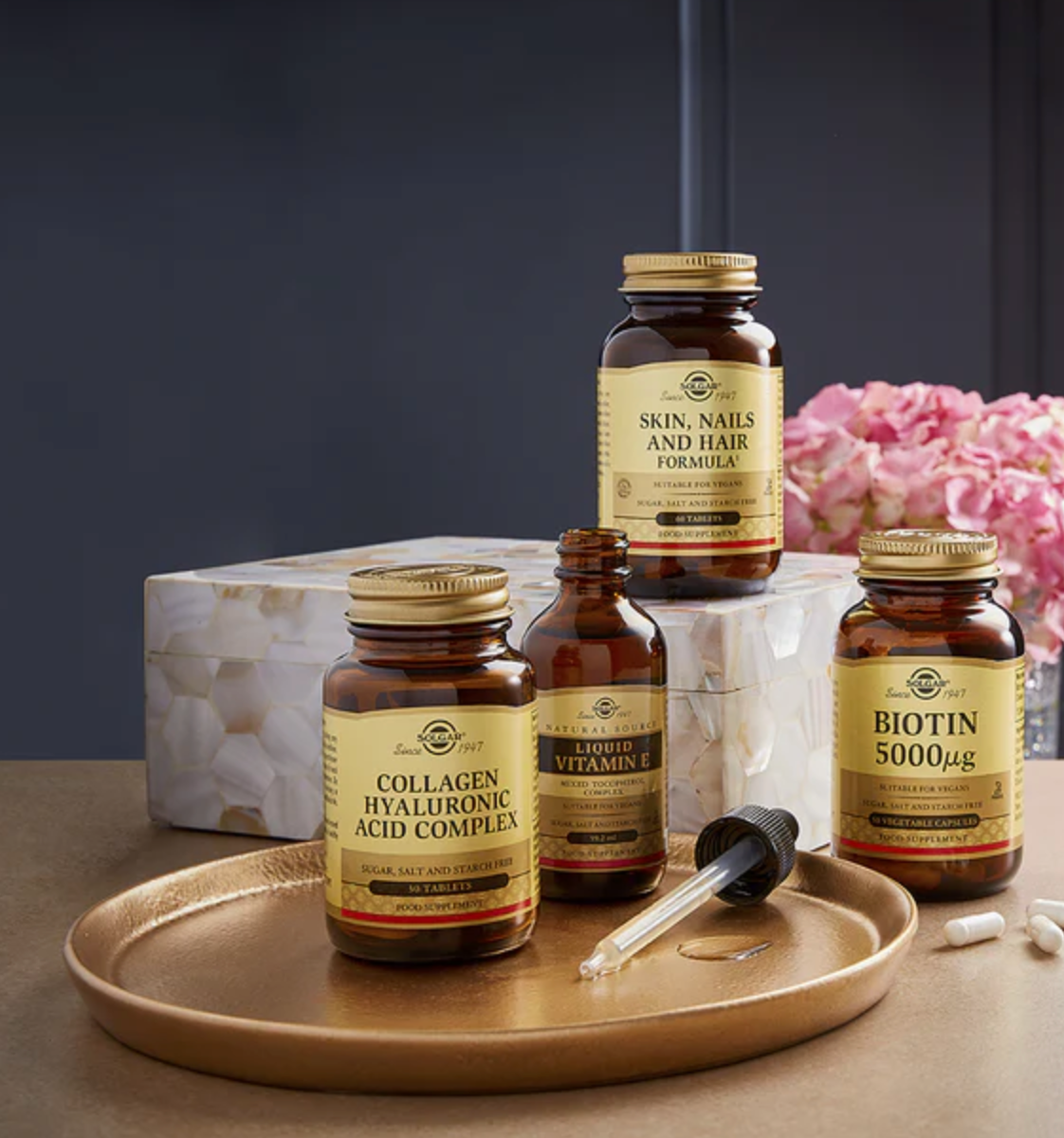
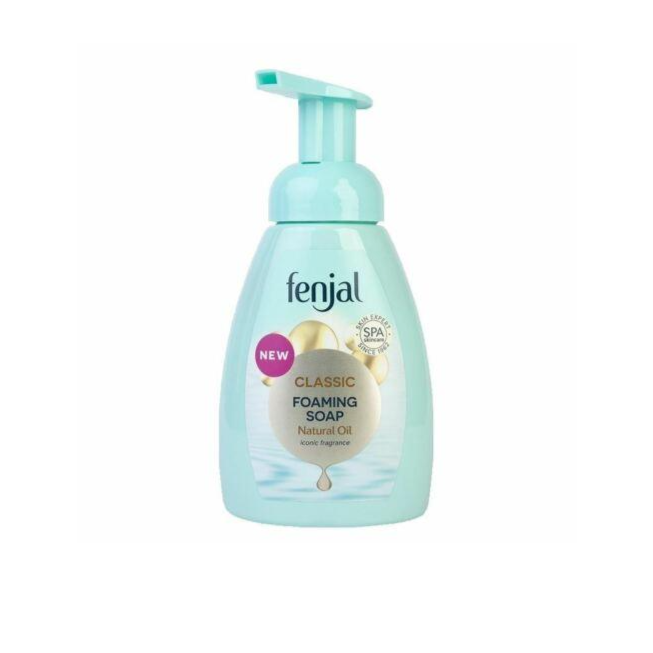


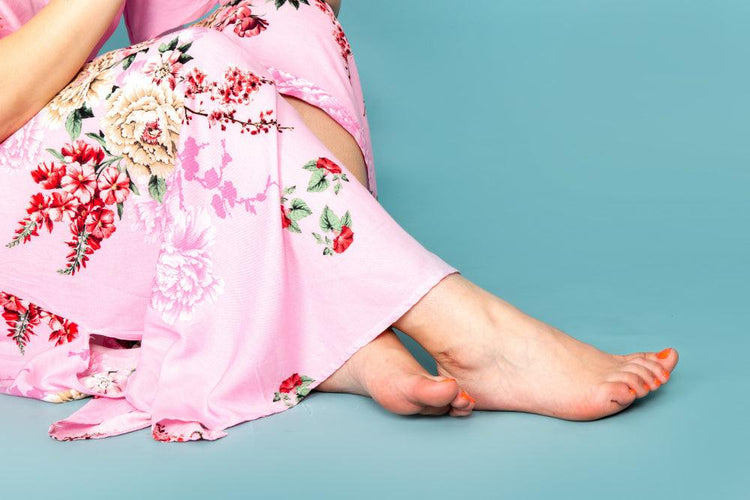
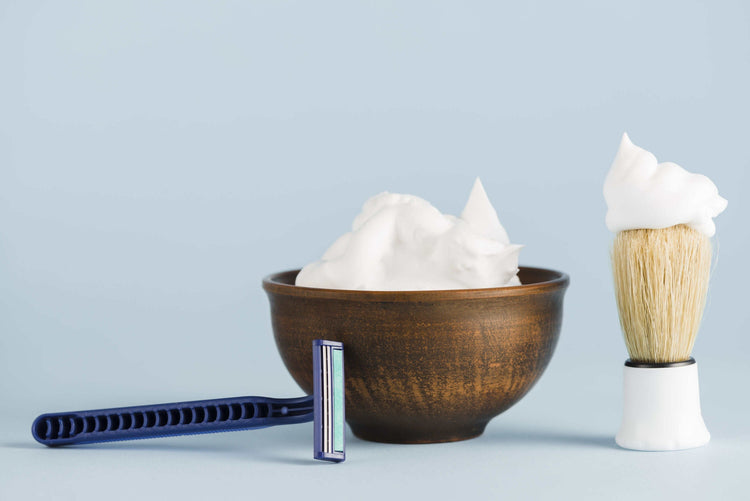

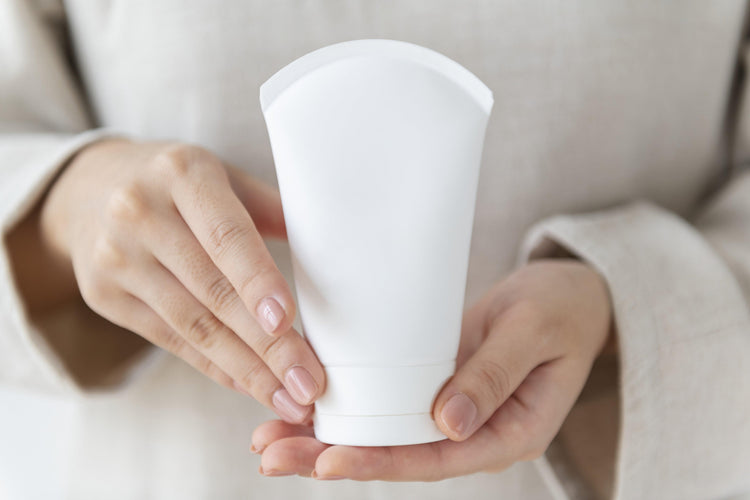

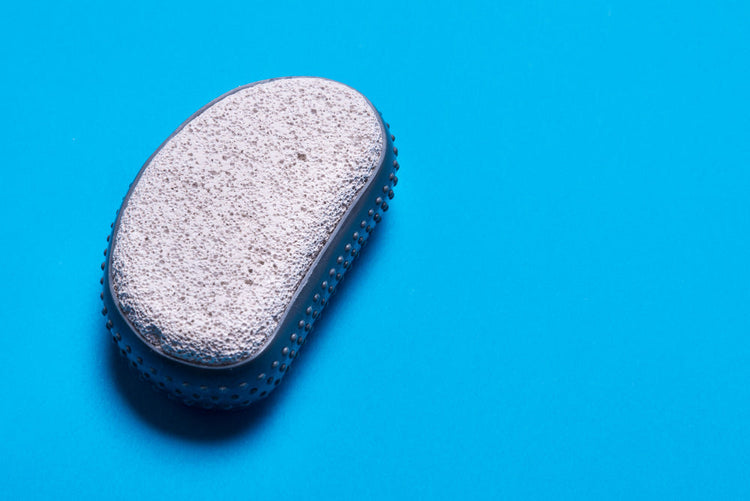

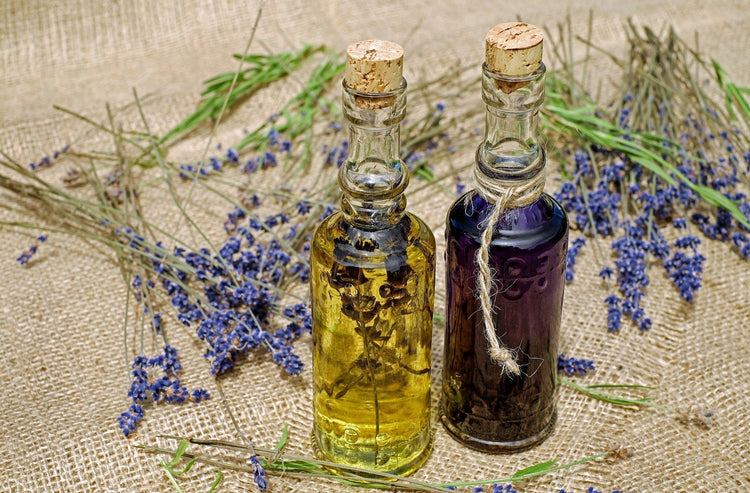

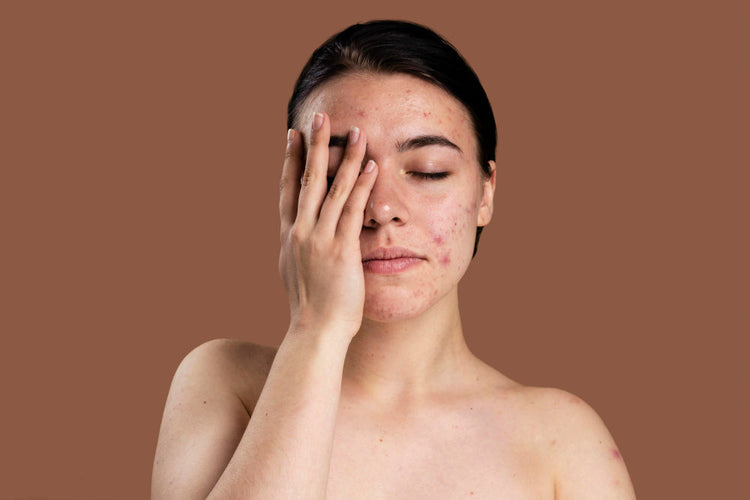
 Rated Excellent by 26,523+ Reviews
Rated Excellent by 26,523+ Reviews